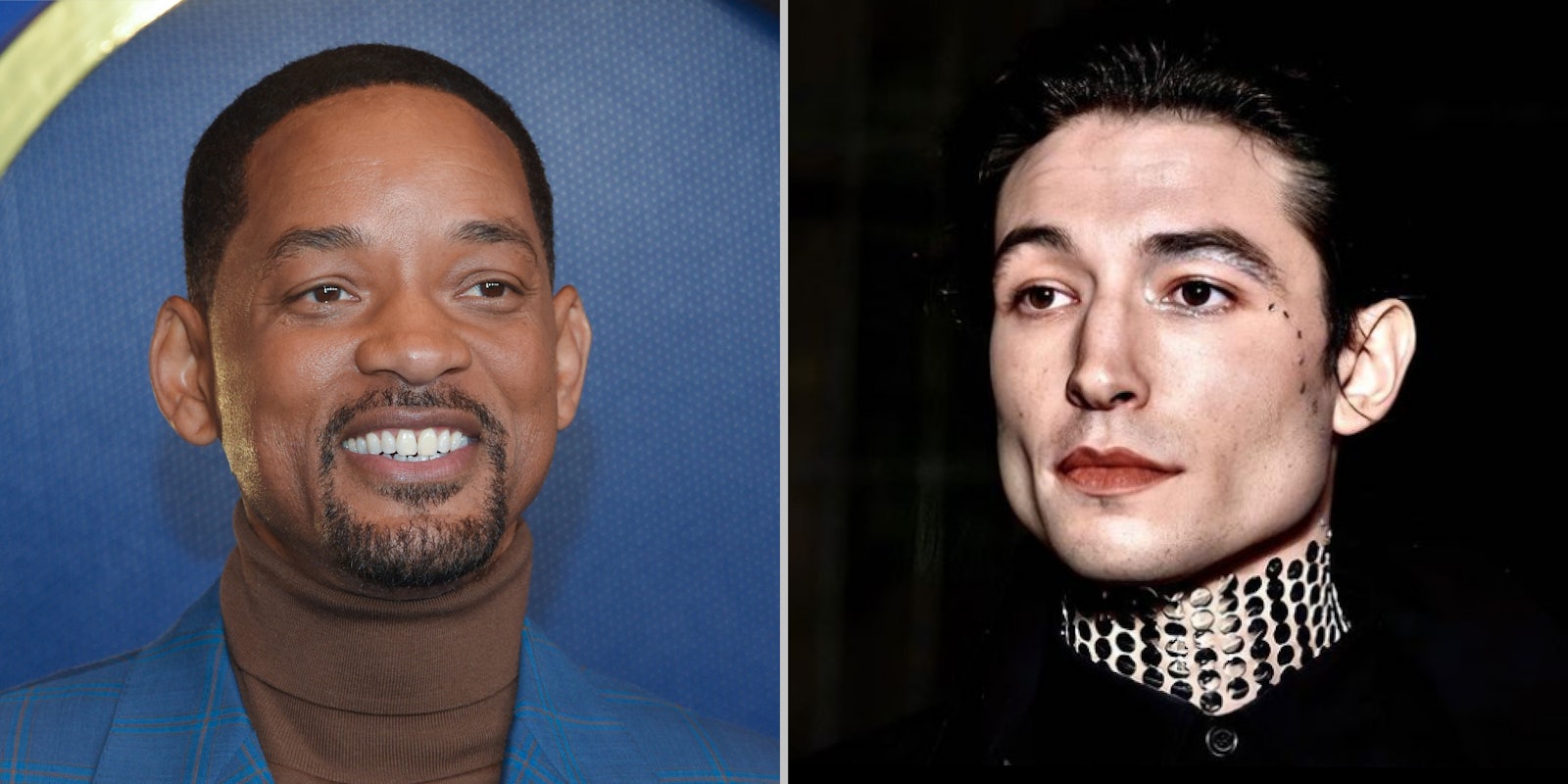After months of escalating legal issues including charges of assault and burglary, Ezra Miller has issued a statement acknowledging that they went through an “intense crisis” and are now seeking mental health treatment.
In a statement to Variety, Miller said, “Having recently gone through a time of intense crisis, I now understand that I am suffering complex mental health issues and have begun ongoing treatment. I want to apologize to everyone that I have alarmed and upset with my past behavior. I am committed to doing the necessary work to get back to a healthy, safe and productive stage in my life.”
As this statement spread on social media, it fuelled a recurring talking point: Comparisons between Hollywood’s treatment of Ezra Miller and Will Smith.
In the wake of the Oscars slap, Will Smith was given a 10-year ban from the Oscars, and several of his upcoming projects were shelved. The resulting scandal sparked weeks of discourse about the severity of Smith’s actions, tying into debates about race, gender, and violence in Hollywood. Many commenters argued that Smith was held to a harsh double-standard compared to white celebrities, namechecking A-list stars (like Mel Gibson) whose careers are thriving despite violent and abusive behavior.
A lot of people see Miller’s situation as evidence of white privilege because while Smith faced swift repercussions after the Slap, Miller’s Hollywood future remains ambiguous. And despite several high-profile arrests and a recent felony charge, Miller isn’t in custody.
On the one hand, Miller’s two upcoming projects (The Flash and Daliland) were both filmed prior to their crime spree; a different situation to Smith, who lost out on some projects that were in pre-production, but still has numerous upcoming credits listed on IMDb. However, Miller’s role in The Flash faces constant criticism because it’s a high-profile superhero movie, linking Miller’s toxic image with a blockbuster brand. It’s in Warner Bros.’s best interests to rehabilitate Miller’s image, to avoid dropping a $200-million movie.
These comparisons with Will Smith are also exacerbated by two overlapping conversations about racism in Hollywood: the cancellation of Batgirl, and the Academy’s belated apology to Sacheen Littlefeather, a Native American activist who faced harassment after giving a speech at the Oscars in 1973.
Warner Bros. canceled Batgirl—a nearly-completed movie with a Latina lead—allegedly to get a tax write-off. The studio is also reportedly “slowing” the development of several other DC Comics projects with nonwhite leads. This doesn’t look good alongside the studio’s desire to promote and release The Flash, a movie with a white star. Meanwhile, as news broke that the Academy was issuing an apology to Sacheen Littlefeather, this drew comparisons to the Academy’s much-swifter response to Will Smith.
While Warner Bros. is still hoping to release The Flash with as little controversy as possible, it’s going to be an uphill battle. Ezra Miller’s legal troubles are no longer just about Miller and The Flash. They’re now connected to ongoing public conversations about race and privilege in Hollywood—just like the never-ending discourse around the Slap, in fact.


